Kathmandu in one week (I): sites, villages, and local people – Nepal
On the evening of September 25th, I flew from Bucharest to Kathmandu. I had a stopover of one hour (which lasted two hours due to some delays) in Doha, Qatar. Qatar Airlines had displays incorporated into the front seat, and I could watch movies during the flights. Time passed quite quickly during the first flight from Bucharest to Doha. But during the second one, from Doha to Kathmandu, I fell asleep because it was past midnight. When I woke up, I looked out of the airplane’s window and saw the snowy peaks of the Himalayas for the first time in my life.
I landed in Nepal the following morning, after a total of thirteen hours of flight (without considering the confusing difference of time zones). I woke up to reality in Kathmandu’s airport, which had the atmosphere of the ’70s. There, I paid for my visa for three months (100$). Unexpectedly, no one waited for me at the airport as I had expected (and talked in advance). When I went in front of the airport, all the taxi drivers jumped on me but no one had my name written on their cardboard.
I tried to withdraw some money from a bank machine, but none of my credit cards were functional. Therefore, I left my big backpack with a Nepali man selling SIM cards at a Ncell store and went to exchange some money at an office in the airport. I bought a local prepaid SIM for Internet, and, finally, wrote a message on Facebook to Dinesh (Sega’s acquaintance from a travel company). Dinesh told me he had forgotten to send me a driver, but he urgently sent me a prepaid taxi. The taxi took me to the Home Heritage Hotel in Thamel, where I had booked a single room beforehand. Hira (Dinesh’s employer) waited for me at the hotel. Dinesh had sent him to greet me as a request of forgiveness for forgetting to send me a driver to the airport.
At the restaurant of the hotel, I had my first dhal bhat – the Nepalese traditional dish with rice mixed up with spicy sauce and vegetables. Then, I sunbathed on the rooftop terrace, while I was waiting for Hira to come and escort me to Dinesh’s travel agency in Thamel. Dinesh was yawning and talking on the phone when I entered his office. He hardly paid attention to me but the conclusion was the same. I couldn’t go to Tibet because the Nepali border with China was still closed after the 2015 earthquake. Only the Nepalis and Chinese could cross the border. A round-trip flight Lhasa – Kathmandu had a fixed price set by the Chinese government and it didn’t worth paying so much only to go to Tibet (700$).
Kathmandu, the first day
Short Description: I explored Durbar Square. My first feeling walking down the streets of Kathmandu was overwhelming. I felt I couldn’t handle my way out through the maze of streets, but I activated my sense of direction after a travel break of several months. Eventually, I somehow reached Durbar Square.
Long Description.
Durbar Square was an architectural and urban complex listed as a UNESCO World Heritage Site, and it dated back to the seventeenth and eighteenth centuries. Durbar means “palace” in Nepali. The kings of the town were crowned in the square and they lived in the nearby palace. The Durbar area consisted of three squares – Basantapur Square (the former royal stables), the main Durbar Square (which included all the temples), and the square in front of Hanuman Dhoka Palace (which had a series of no less than four or five patios).
Big and small temples, altars, cows, peddlers, pilgrims offering orange flower garlands to the temples, tourist crowds, tour guides, rickshaws, beggars, and saddhus were teeming in Durbar Square. There were still many temples, even after the 2015 earthquake when some of them had collapsed. Saddhus are men ‘spiritually advanced,’ but the ones sitting in the square were rather competing to pose in photos for tourists and then ask for money.
When I entered Durbar Square, a guide wanted to offer me a tour, but I refused him and smiled assertively. Everybody sold something in the square. Sabitri sold me a pair of wooden earrings that seemed both unbelievably cheap and beautiful. Pulna sold me a bag with a mandala drawing on it, which I bought for the same reason. Both women had beautiful makeup and spoke English, although they had never been to school.
On one side of Durbar Square, there was the house of the living goddess, Kumari. The Kumari Devi was the reincarnation of Durga. When visiting her house, you weren’t allowed to see, touch, or photograph her. The house was considered a holy place and saddhus dressed in white came to worship there. The Kumari goddess was chosen by a complex set of criteria. She had to be born as a member of the Newari caste of goldsmiths or silversmiths. She had to have thirty-two physical features (eyes, teeth, voice, not to be afraid of the dark, etc). However, the Kumari Devi would lose her purity and the ‘goddess’ title when she would have her first period.
Guide Jyaipun recognized me when I passed close to him for the second time. He still wanted to offer me a tour, but I confused him when I asked where to eat in the square. He led me to a local eatery, where he paid for my meal, too. We had somos (a spicy pie with potatoes, onions, and beans, served with a sweet-sour sauce) and seil (a kind of sweet donut, with a lot of sugar).
In the afternoon, I walked down the streets south of Durbar Square. I observed Buddhist stupas within various courtyards and Hindu temples, where merchants proudly displayed their wares. On the way back to Thamel, a saddhu came and offered me a red tikka for good luck. He painted a red dot on my forehead and put some orange flower petals on my head. After that, he asked for money and seemed unhappy when I gave him ten times less than how much he asked. I continued my walk along the streets north of Durbar Square and stopped from place to place to look around and admire the local architecture.
At Indra Chowk market, I explored the stalls selling beads popular for married Nepalese women. The beads had a brilliant combination of yellow, red, and green and only men made them. Women ordered the beads model and then sat on stools in front of the shop while waiting for their new pair of beads to be made.
In the evening, I met with my guide-cum-porter, Rishi, at the restaurant of the hotel. We talked about the trekking I wanted to do (Tamang Heritage Trail in the Langtang Area). Rishi had done the trek once but wasn’t sure of the correct trail. He said I shouldn’t pay him because we had common friends, but I told him I would give him as much as I could afford at that moment. We set up to leave by October 15th. Everything seemed okay.
Kathmandu, the second day
Short Description: I went to visit the Garden of Dreams. After that, I walked randomly through Thamel and explored the local lifestyle and the shopping possibilities in Thamel Chowk, Paknajol, and Sagarmatha Bazaar in Mandala Street.
Long Description.
When I entered the Garden of Dreams, I had the feeling that I wasn’t in Nepal. A British marshal designed the garden with rigorous influences creating a stark contrast to the outside world. Everything was shiny and in perfect order, with rippling and sparkling fountains, and squirrels keeping their tails up and running all over the place. They were chasing each other and asking for food from people. Nepalis were relaxing on mattresses or directly on the grass. The garden had manicured grass, colorful flowers alternating with banana trees, and a very expensive restaurant on site. Something totally different for Nepal.
Thamel was the touristic district of Kathmandu. It featured unexpectedly cheap accommodation and hotels, restaurants, and shops all close together. You could find anything, anywhere, anyhow, and at any price (which was negotiable anyway). I couldn’t understand what I had to do to withdraw money from a bank machine because some debit cards were functional, some weren’t. The rickshaws were lining along the street, waiting patiently for clients. Taxis were honking on the narrow streets. I found out that a map was useless and I better used a GPS in case I got lost.
When it rained (the monsoon season wasn’t over yet), all roads were flooded with water mixed with mud – a marvelous combination. Twisted cables and billboards mixed up in bunches seemed complex architectural details. However, all in one, I felt good in Thamel, despite all the existing mess. I had everything on hand and I could experience the Nepali atmosphere gradually. I didn’t have to make a sudden switch from the European civilization left behind the previous week. In a nutshell, Thamel was a Nepali district dedicated exclusively to Western tourists. Perfect for me!
In the evening, I met with Diku – a Nepalese girl I had found on the Couchsurfing platform. She was a mountain guide and worked in a travel agency in Thamel. For dinner, Diku had masala tea and pakauda (balls of onions, potatoes, and other vegetables, a bit spicy) and I had lassi (Nepali yogurt).
Kathmandu, the third day
Short Description: I decided to rent a bike to be more flexible. I cycled through Kathmandu to Swayambhunath (the Monkey Temple). After that, I pedaled up a steep hill for five kilometers, all the way to Ichangu Narayan (a small, authentic temple I had read about in the Lonely Planet guide).
Long Description.
I negotiated and rented a bicycle at a shop in Chhetrapati Paknajol, a neighborhood close to Thamel. I had the feeling that I was cycling in hell for the first three hundred meters. Taxis, rickshaws, bumps in the road, and people walking chaotically discouraged me completely. Nevertheless, I persevered and cycled further on. I turned right at Chhetrapati Chowk crossroads and pedaled down to the Vishumati River. When I wanted to cross a very busy street, I had to get off the bike and then move toward the middle of the street step by step. If possible, I hid behind another pedestrian and managed to cross the street this way. Eventually, I managed to cross the street in approximately ten minutes, and after that, I continued toward Swayambhunath.
Swayambhunath (or the Monkey Temple) was a Buddhist architectural complex listed as a UNESCO World Heritage Site. It sat on a hilltop and had a large, white, imposing stupa in the center. Monkeys invaded it all the time. When I got there, they were running all over the place, entering shrines and eating offerings (flowers, fruit, or rice), or they were scratching each other for hours. They also seemed aggressive if someone dared to get closer to them.
In the courtyard of the Swayambhunath Buddhist complex, a row of shops lined around the stupa and sold religious items. In Bishu’s shop, a CD with Om Mani Padme Hum mantra was playing. The sacred mantra means the entire path that an individual has to perform in life to transform his body and mind. I entered Bishu’s shop crooning the mantra. Bishu told me that he was not a wealthy man and that fewer tourists came to Nepal after the 2015 earthquake. He added that Christians lived in Nepal, too. During the earthquake, a priest had locked his parishioners inside his church and had told them that God would protect them. The church had collapsed and all the forty-nine people inside the church had died.
From Swayambhunath temple, I cycled for five kilometers uphill to Ichangu Narayan, a village near Kathmandu. There, I found a small temple in a courtyard dotted with many deity statues. The temple dedicated to Vishnu (reincarnated as Narayan) was built of wood in the pagoda style and had wooden rafters and reinforcements carved with colorfully painted deities. When I arrived there, the place was deserted. A bit later, two-three Nepalis came and worshiped, put a tikka on their foreheads with red paint from the statues, and walked clockwise around the temple.
When I returned to Kathmandu, I stopped once again at the Monkey Temple, on a platform at the starting point of the stairs for pilgrims. Monkeys were chasing each other everywhere. I sat on a bench next to other locals. A woman wore beads made in Indra Chowk – the place I had visited the previous day. An old man with a rosary in his hand was whispering prayers from a book with yellow pages. A Nepali man was expectorating every two minutes, while another one accompanied him blowing his nose. Two old women leaned slightly forward saying ‘Namaste’ to a man sitting on a bench and then sat down next to him. When I couldn’t bear the spittings surrounding me anymore, I took my bike and returned to the ‘European civilization’ of Thamel.
Kathmandu in one week (I) is the first travelogue about Kathmandu, Nepal. You can find the version in Romanian at ‘O saptamana in Kathmandu I‘. The continuation of this travelogue can be found at the following link Kathmandu in one week (part II). And here are all the Travelogues from Nepal (x12).
Have you been to Nepal or plan to go there? Leave a comment below this post and tell me what you liked in Nepal or what you want to see there.
Want to subscribe to my travelogues? Just leave your email in the subscription form below, and you’ll be notified when I publish a new post.
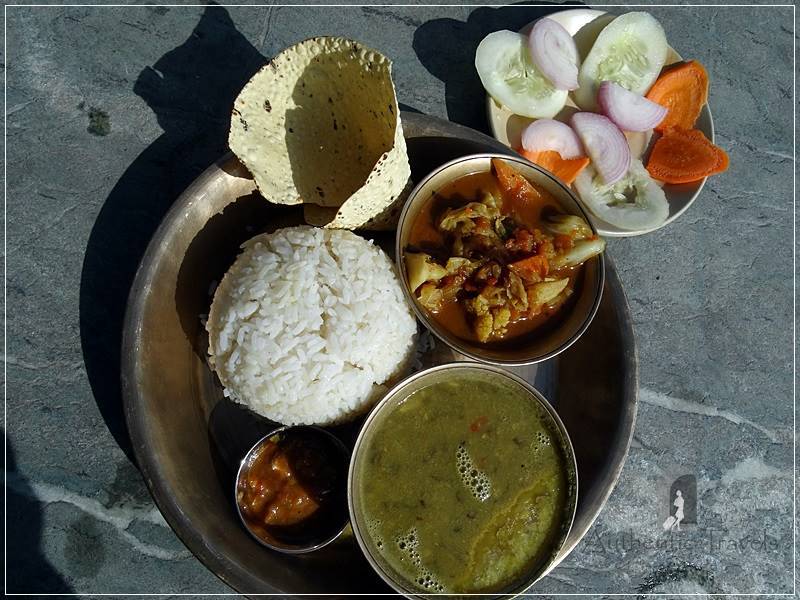
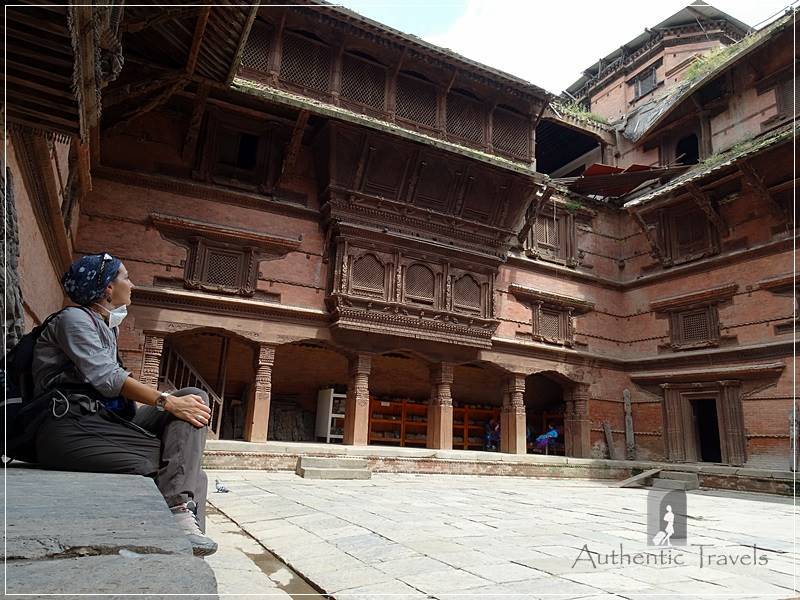
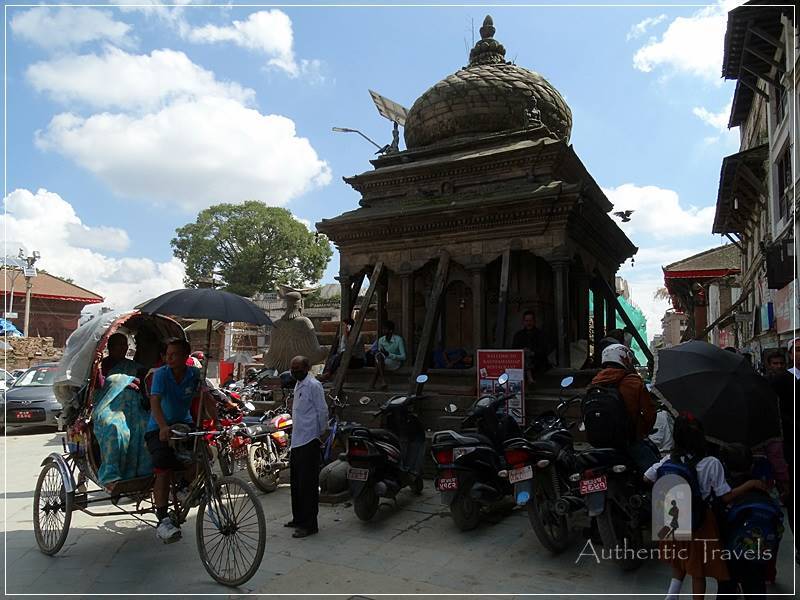

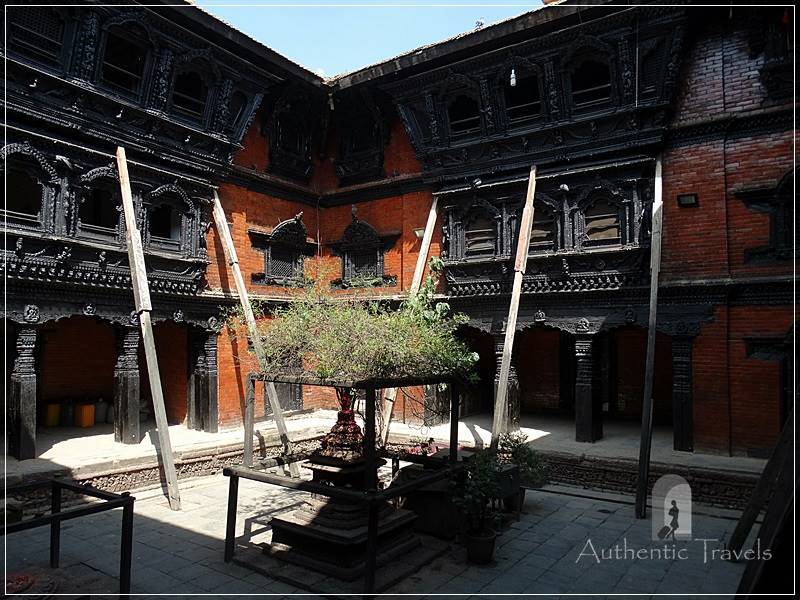
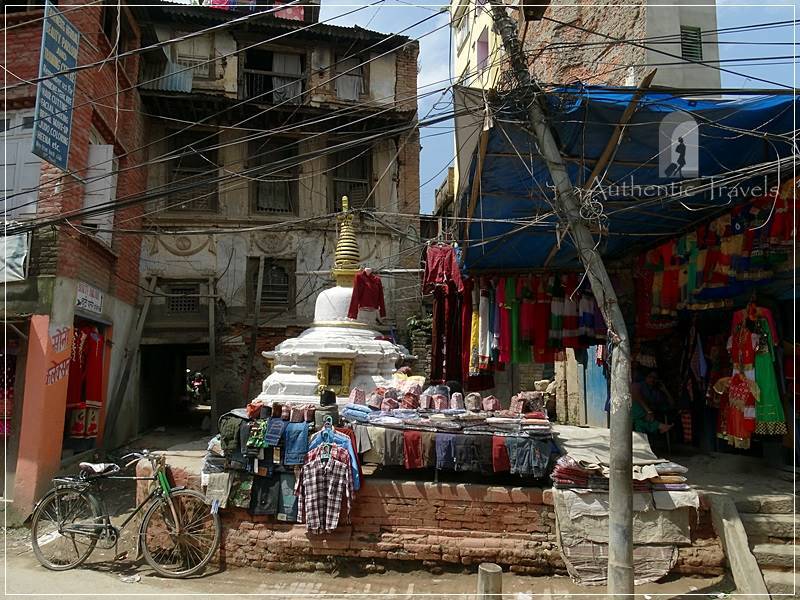
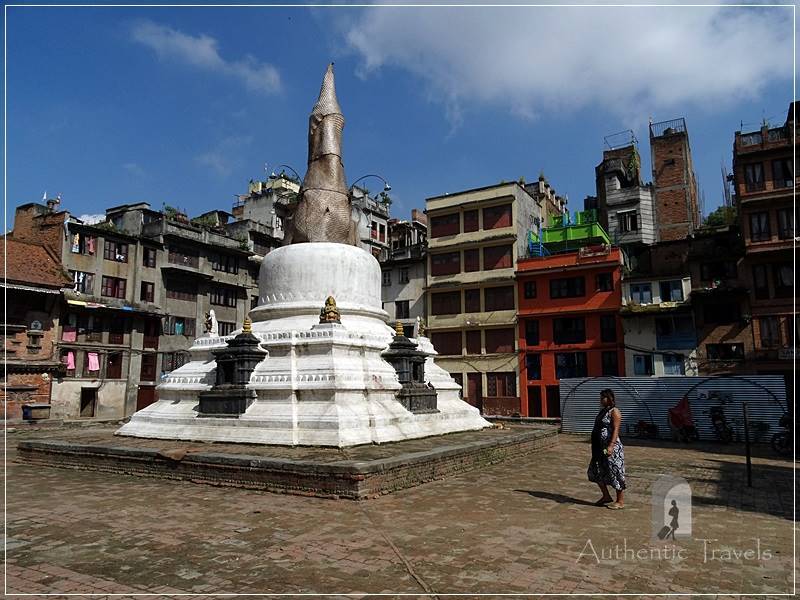
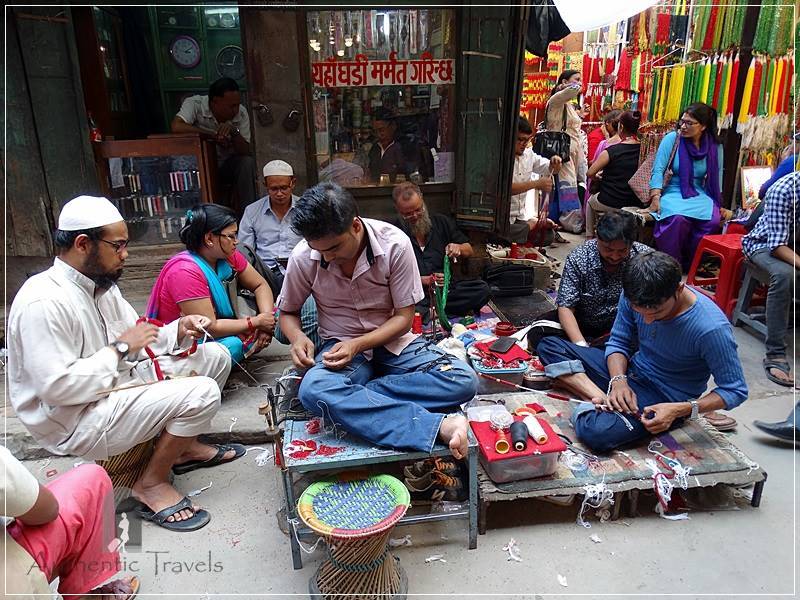
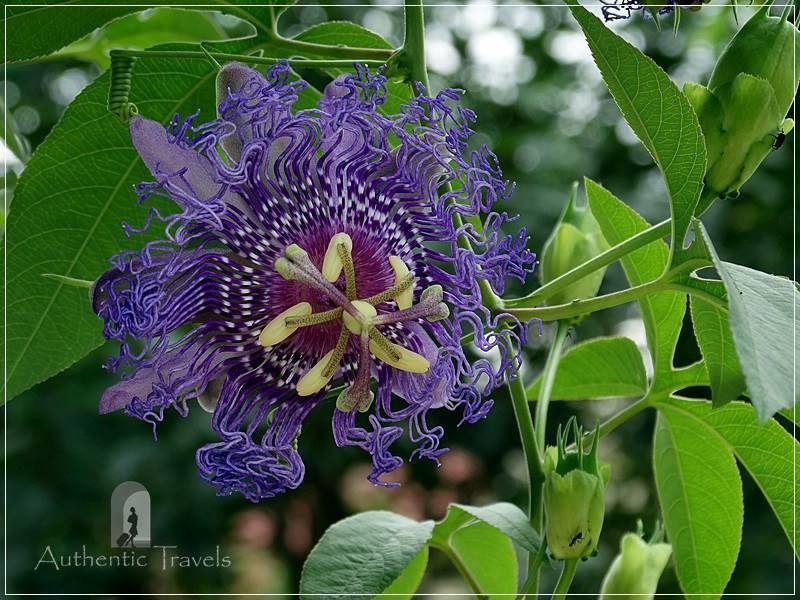
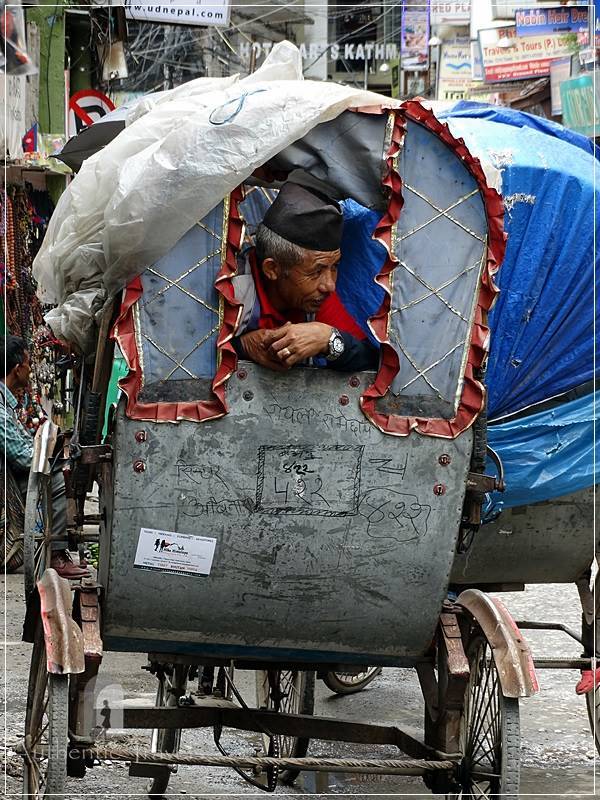
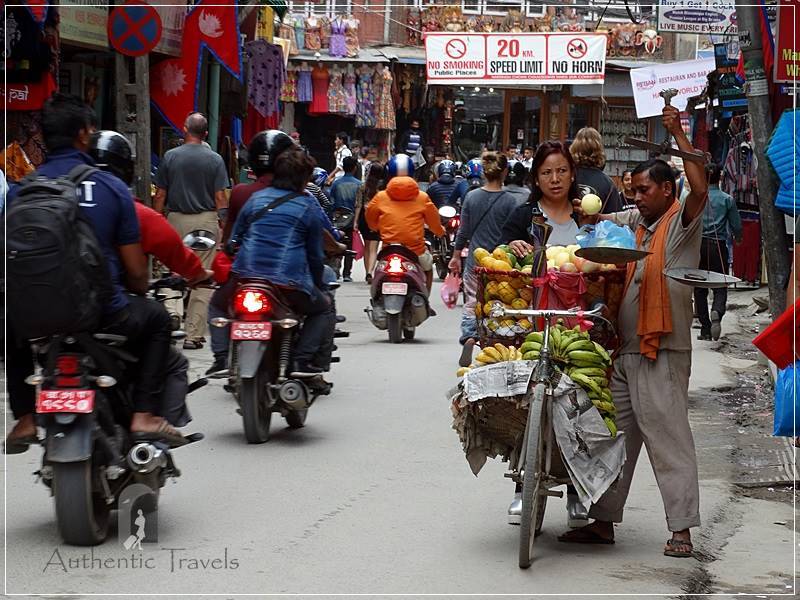
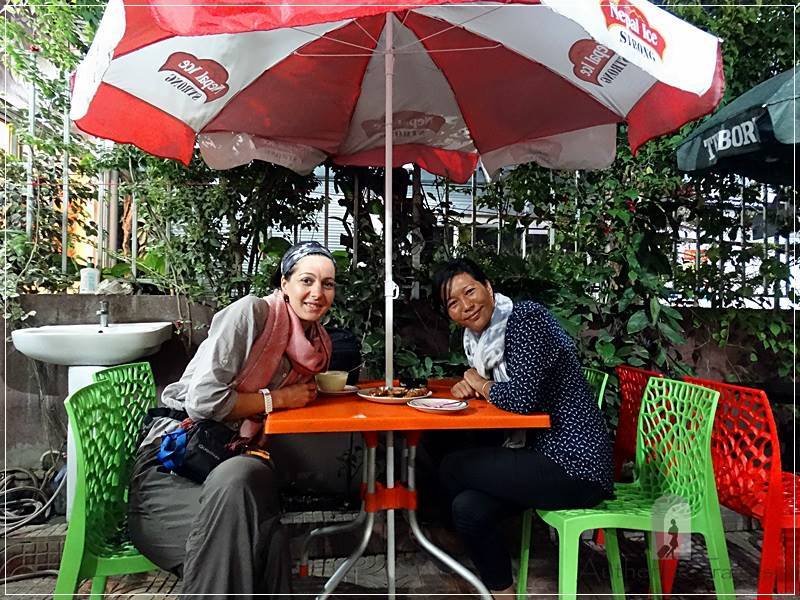
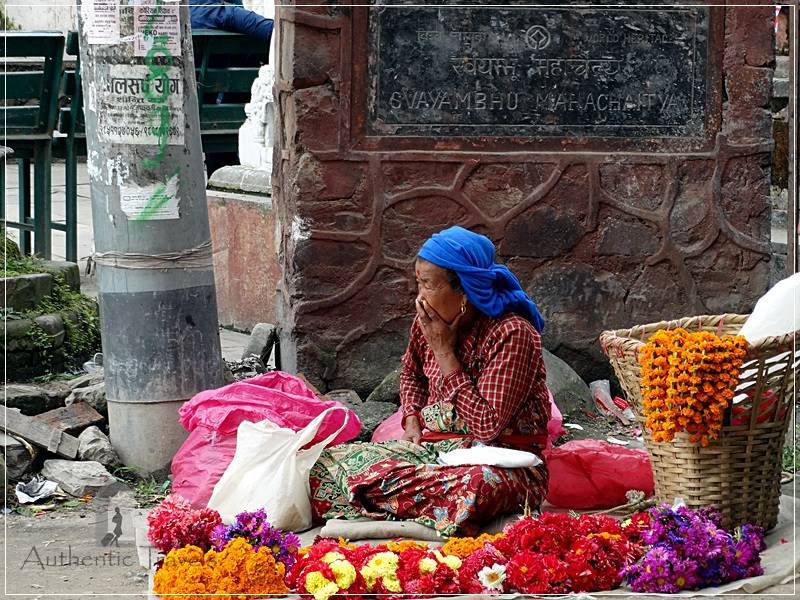
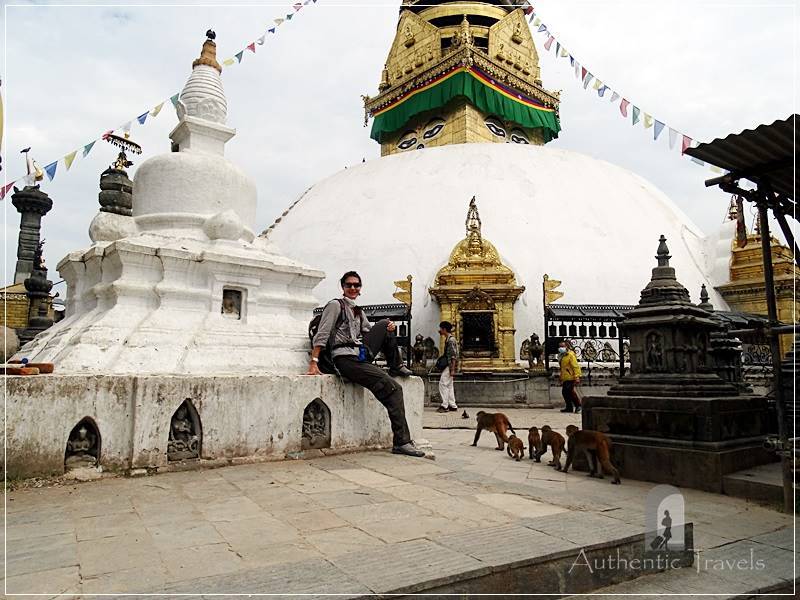
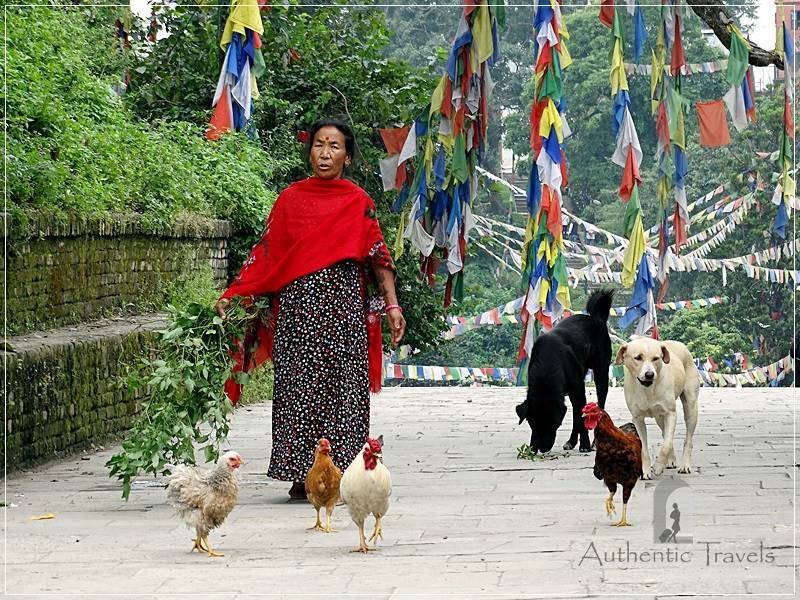
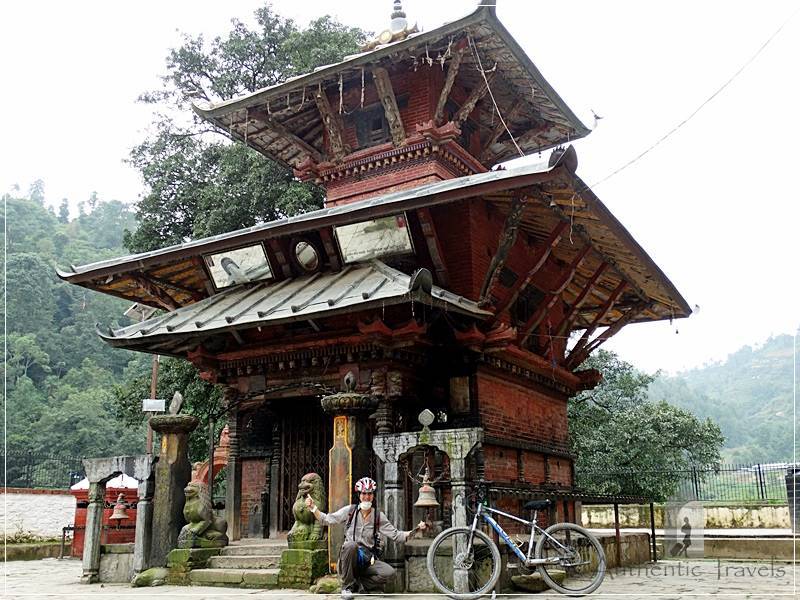
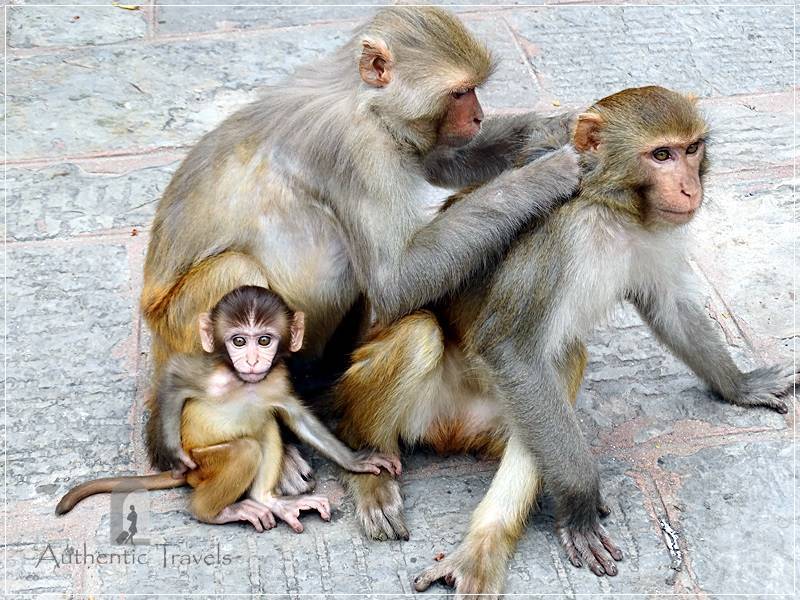
Oooooh the experience was at first seemed dreadful, with no one to pick you up at the airport! But the rest of the trip looked worthwhile. Kathmandu is beautiful!
Traveling challenges you in the most unusual situations. But in the end you realize that you can overcome anything that happens to you and that fear and worries don’t have a place in you heart.
IT IS ALWAYS A JOY TO VISIT A NEW PLACE AND EXPLORE IT; TRY THE DIFFERENT FOODS AND EXPERIENCE A NEW WAY OF LIFE; AMAZING
You are so right ! I always enjoyed try new foods and seeing new places in the world.
Kathmandu is such an amazing place of contrasts! So many poor people and some foreigners and business people who live in relative luxury compared. However what mostly fascinates me are the Buddhist monks everywhere, they humble ways touched me deeply, even though I am a Hindu!
Waw, that’s fantastic. It is so interesting that you are a Hindu. 🙂
I honestly didn’t know much about this destination so thouroghly enjoyed your comprehensive overview. Love the photos of the temples!
Yes, the Hindu temples are a true work of art !
Wow this does look like a really authentic experience and I am so glad you shared it to inspire others. Even the rough start is all part of the adventure right?
Nepal had many rough parts for me but now that I am back home safe and healthy I take it as an experience that is part of life. And I am happy that I can share it with you and be an inspiration for your future travels.
What a beautiful passion flower! It’s funny how every trip has something go wrong, but it sounds like you took it in stride. It’s hard to imagine a place where having monkeys run around is normal!
I didn’t know that it was the passion flower. Not all Nepal is full of monkeys, but especially some temples have monkeys running all over.
Kathmandu looks amazing – from the colourful markets & beautiful temples to the cute monkeys! I’m glad you enjoyed your trip in the end, even when things don’t work out it still makes for a great story!
Well, lately it seems that I am experiencing that balance between ‘things that go well” and “things to don’t go well’. There’s always a balance though sometimes we don’t want to accept the bad ones and lie to ourselves.
Wow you have so many amazing pictures! Kathmandu would be an incredible place to visit and just look at those cute little monkeys!
The monkeys are cute but they are aggressive as well if you come close to them, so take care when you go there.
Kathmandu looks amazing, really colourful with lots of things to go. Nothing worse than turning up at an airport though without being able to get money and no driver. It can def tell be overwhelming
The funny thing was that I tried to prevent this talking beforehand with a driver to wait me … but everything was in vain. A promise in Nepal is different than a promise in other parts of the world.
I’ve never read a post on Kathmandu, so this was so interesting! I especially enjoyed reading the section about the Indra Chowk market. I usually see women making small crafts like beads, so it was a surprise to see that it was all made by men.
Indeed, Indra Chowk is well hidden behind a crowded crossroads so you cannot find it unless you carefully read the guide book before. It was my first day in Kathmandu so I was very curious to explore all that different world.
So I know this post is about Kathmandu, but I have to say I was pleasantly surprised to see you were in Bucharest. Not many people I know choose to travel to Romania, so it’s always fun to see when someone visits less explored destinations. On a different note, I love the Monkey Temple, the photos of the monkeys are fantastic.
As a matter of facts, I am Romanian so I had to take the flight from the capital of our country, Bucharest. 🙂
Looks like Kathmandu is just as amazing as I’ve always dreamed! I have friends who were there during the earthquake, and were safe, luckily. But I’ve been wanting to go for a very long time and I’m finally going to get there late this year or early next! That garden will be one of the stops we have to make! Cheers!
Go in autumn after the monsoon is over – late October – November is even better. This year, unfortunately the monsoon was a bit late and I had to to a trek in a foggy, misty atmosphere – didn’t enjoyed it as if it were the panoramic views over the Himalayas.
I have never been to Kathmandu but your pictures are inviting enough.Pre earthquake it was more beautiful
Thank god your WiFi was working and you were able to contact the travel agent on FB. No money and no idea where to go sounds daunting for sure .
Well, actually I knew were to go but I didn’t know how because I was relying on the driver from an agency. I had to buy a sim in the airport in order to contact the travel agent, so a lot of work just because I had planned it wrong.
Definitely sounds like an experience! I’ve heard from many people that Kathmandu is quite overwhelming at first – some people seem to love the chaotic mess that the city is, and some people can’t seem to handle it. I give you full credit for navigating the city on a bike! I would love to go though, it sounds like there is so much fascinating culture and lovely people. That’s what travel truly is to me 🙂
Love your photos from the monkey temple!
It was a bit scary for me either to ride a bike but I managed to get used to it in the end. It is a chaotic city, sometimes makes you feek very tired, but you can bare it as an experience .
This is getting me so amped for our trip there next month! I want to see that monkey temple! I also like that you can get a bike to get around! Sounds like you had a great trip!
You can get a bike but remind yourself how your mother taught you to cross the street when you were little. Riding a bike there is more a necessity than a pleasure.
This is a great experience for one week in Kathmandu 🙂 Its a useful guide and you have lovely photos as always! Thanks for sharing with us
Thank you, I am glad that you like the photos.